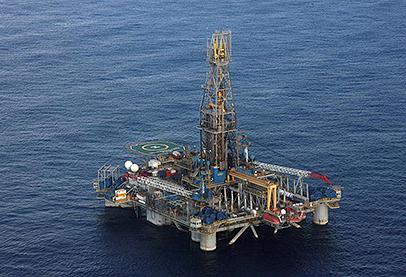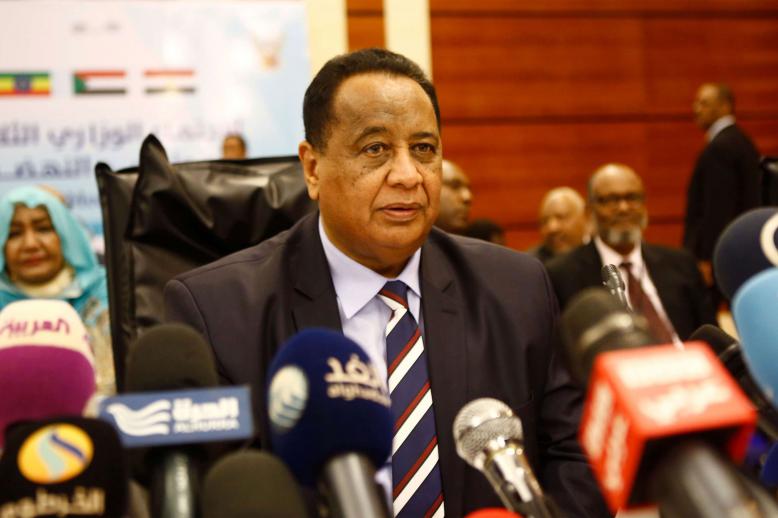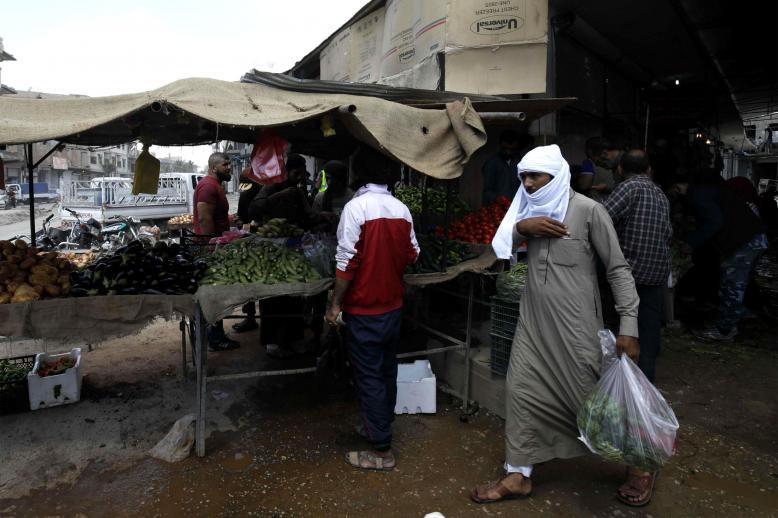‘Witch’s brew’: Energy key factor in region’s wars

BEIRUT - For centuries the Mediterranean was the scene of savage epoch-defining encounters between powerful navies seeking to control the seas that the far-sailing Phoenicians once ruled.
Now the world’s oil majors are scrapping over the vast mineral riches deep below the wreckage-strewn seabed. Control of oilfields in the Middle East, whether on land or hundreds of metres beneath the seabed, is a leading cause of conflict, particularly in the eastern Mediterranean.
Between one-quarter and one-half of interstate wars in the world since 1973 have been linked to oil, a report by Harvard’s Belfer Centre for Science and International Affairs stated.
“No other commodity has had such an impact on international affairs,” said the report’s author, Jeff D. Colgan of American University in Washington.
These fossil-fuelled conflicts are expected to get worse, with a dozen countries, mainly in Africa and the Middle East, on the cusp of becoming oil and gas producers.
The eastern Mediterranean has become important territory as countries and corporations vie for control of the 223 trillion cubic feet of recoverable gas and 1.8 billion barrels of oil that the US Geological Survey estimates it contains.
Lebanon and Israel, enemies of old, are feuding over a major gas field that straddles disputed territorial waters between them. Lebanon’s Iran-backed Hezbollah, armed with anti-ship cruise missiles, has threatened military action and the Israelis have armed their drilling platforms and naval forces with defence systems designed to intercept the Chinese-designed missiles.
“Resource wars are, of course, nothing new,” observed Professor Michael Schwartz of Stony Brook University in the United States. “Virtually the entire history of Western colonialism and post-World War II globalisation has been driven by the effort to find and market the raw materials needed to build or maintain industrial capitalism.”
Turkey and Greece are squabbling over a major gas field off the island of Cyprus, divided into Greek-influenced and Turkish sectors since Turkey invaded in July 1974 and seized the northern one-third of the island.
Egypt, which discovered the rich Zohr offshore gas field in the eastern Mediterranean in 2015, is at odds with neighbouring Israel, which was the first regional country to exploit gas, tapping into its vast Leviathan and Tamar offshore fields.
There are security conflicts over the choke points on the key shipping routes between the Suez Canal, particularly the Bab el Mandeb Strait between the Red Sea and the Indian Ocean and the Strait of Malacca to the east between Indonesia and Malaysia, which links with the South China Sea.
Israel is vying with neighbouring Lebanon over gas fields that stretch beneath ill-defined borders, while Turkey seeks to block the internationally recognised Cypriot government in Nicosia from exploiting sizeable gas fields that will transform the resource-poor island’s precarious economy.
The Turkish Navy has intercepted seismic vessels seeking new fields and has threatened worse if Turkey’s self-styled republic in northern Cyprus is not recognised and given its share of the bonanza. Only Ankara acknowledges Turkey’s war-won enclave.
Egypt’s Zohr gas field, one of the largest in the Mediterranean with an estimated 30 trillion cubic feet of gas, is currently producing 350 million cubic feet a day. Cairo plans to increase that so it can halt imports by 2019 and achieve self-sufficiency.
Israel has also found oil in Arab territory it occupied in the West Bank and the Golan Heights, although it has not begun production in appropriated Palestinian lands. Fossil fuel only moved to centre stage in the Israeli-Palestinian relationship in the 1990s and, although it was initially a circumscribed conflict, it spread to include Syria, Cyprus, Turkey and Russia after 2010.
Israel has found large gas fields in its waters but there are disputes with Lebanon and Cyprus over the parameters of those finds. Taken together, these amount to a major economic prize for all concerned. The US Geological Survey estimates the offshore zones hold at least 130 trillion cubic feet of gas and the equivalent of more than 1 billion barrels of oil.
The contesting states cannot even agree on what to do with the gas once it is extracted. Some support underwater export pipelines to Turkey. Others favour establishing infrastructure on Cyprus to process the gas for export.
Egypt, with Zohr now producing, argues it should be the transportation hub.
The territorial disputes mean little of this bonanza is being exploited or is likely to be exploited for years to come — if ever.
All the while, the Israelis have been sharpening their swords in preparation for resources wars that Schwartz and others are convinced are looming.
The scramble for energy includes war-torn Syria, which also has an offshore exclusion zone in the eastern Mediterranean. It is witnessing fierce fighting for control of its north-eastern oilfields in Deir ez-Zor province, a key source of revenue for the embattled Damascus regime before the conflict erupted in March 2011.
Syria also has claims on offshore blocks in the eastern Mediterranean but exploring them will have to wait until the war is over.
“Four years of manoeuvring around the newly discovered Levantine Basin deposits have produced little energy but brought new and powerful claimants into the mix, launched a significant military build-up in the region and heightened tensions immeasurably,” Schwartz observed.
The Middle East accounts for one-quarter of all world oil supplies and has two-thirds to three-quarters of all known oil reserves.
“The importance of energy within the Middle East and its ever-present role in regional conflict is hard to overstate,” Kevin Downey, a US-based environmental specialist wrote in a recent analysis. “Control of the global energy market means being able to exert huge influence on the international economy and the Middle East’s vast fossil fuel reserves have always attracted the interest of intentional superpowers.
“The last two decades of constant regional conflict have been a consistently perilous struggle for power and market control, especially between Saudi Arabia and Iran, the two largest economies in the Middle East.”
This will continue. The Saudis, seeking to preserve their status as the world’s largest energy producer, have blocked efforts to develop new export routes that could dramatically change the global gas market.
“Saudi Arabia… leader of the Organisation of the Petroleum Exporting Countries, has long used whatever means are necessary to ensure that its business never shrinks,” Downey observed.
The Saudis, backed by the United Arab Emirates and other regional allies, are fighting a largely proxy conflict with Iran-backed Houthi rebels in neighbouring Yemen. It’s a messy affair that is escalating into what many fear will be an all-out war between the two energy giants long riven by deep religious and ideological differences.
For Saudi hawks, their efforts to boost the value of oil would benefit from higher prices. One way of doing that would be sharply reduce the flow of natural gas to Europe, if not the entire world, from Iran and Qatar, key gas producers — both of which are currently at sharp odds with Saudi Arabia.
US President Donald Trump, despite recent criticism of Riyadh, strongly supports the Saudis and recently signed a $100 billion arms deal with the kingdom, the largest such agreement in US-Saudi history.
The region’s immense energy resources have long made the Middle East central to strategic planning by Washington and Moscow.
Michael T. Klare, an American energy specialist and author who is a professor of peace and world security studies at Hampshire College in the United States, describes the energy conflicts as “a witch’s brew of ethnic, religious and national antagonisms that have been stirred to boiling point by a fixation on energy.”
Klare explained that “these intensifying conflicts are not just about age-old hatreds,” but are driven by “the desire to control valuable oil and gas assets. Make no mistake about it, they’re 21st-century energy wars.”
The struggle over energy resources has been a conspicuous factor in many recent conflicts, including the Iran-Iraq war of 1980-88 in which 1 million people reportedly died, the Gulf War of 1990-91, the Sudanese civil war of 1983-2005 and the savage conflict in South Sudan.
“As these conflicts and others like them suggest, fighting for control over key energy assets or the distribution of oil revenues is a critical factor in most contemporary warfare,” Klare stressed.
Ed Blanche has covered Middle East affairs since 1967. He is the Arab Weekly analyses section editor.
This article was originally published in The Arab Weekly.





